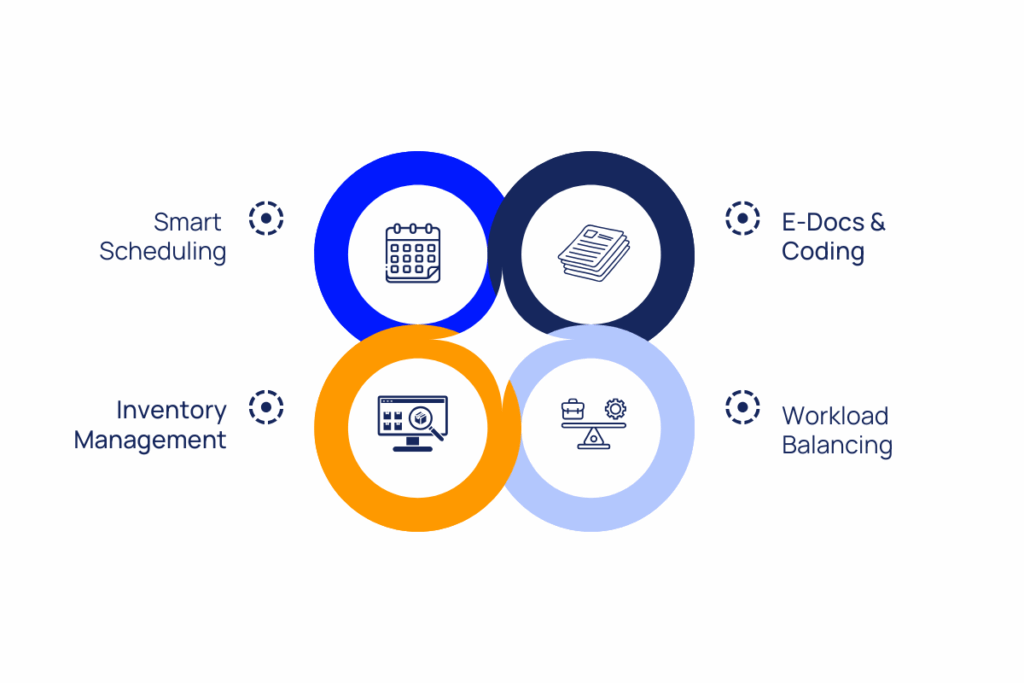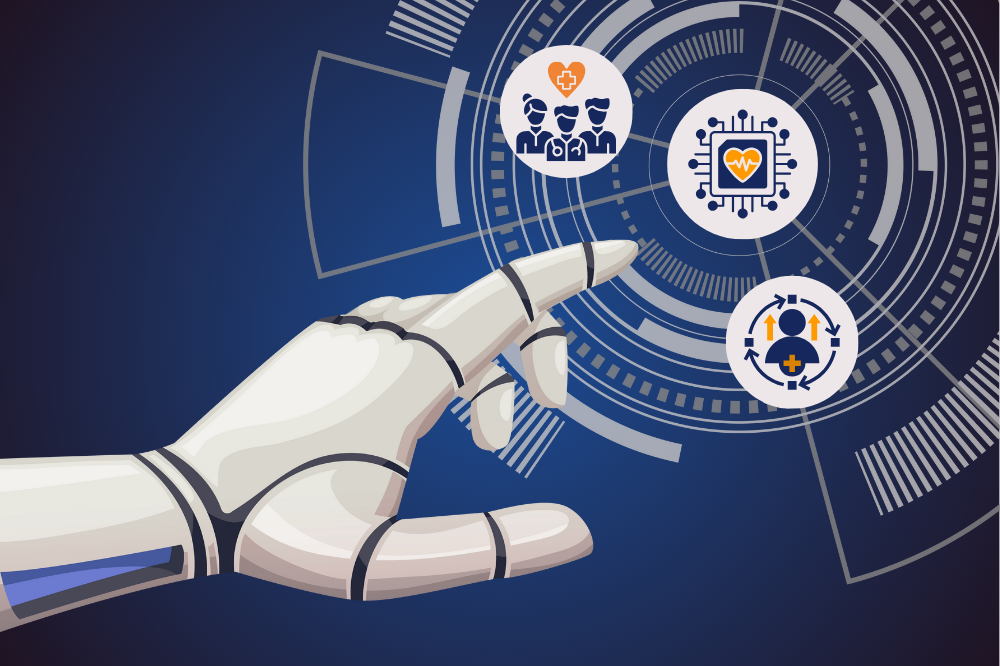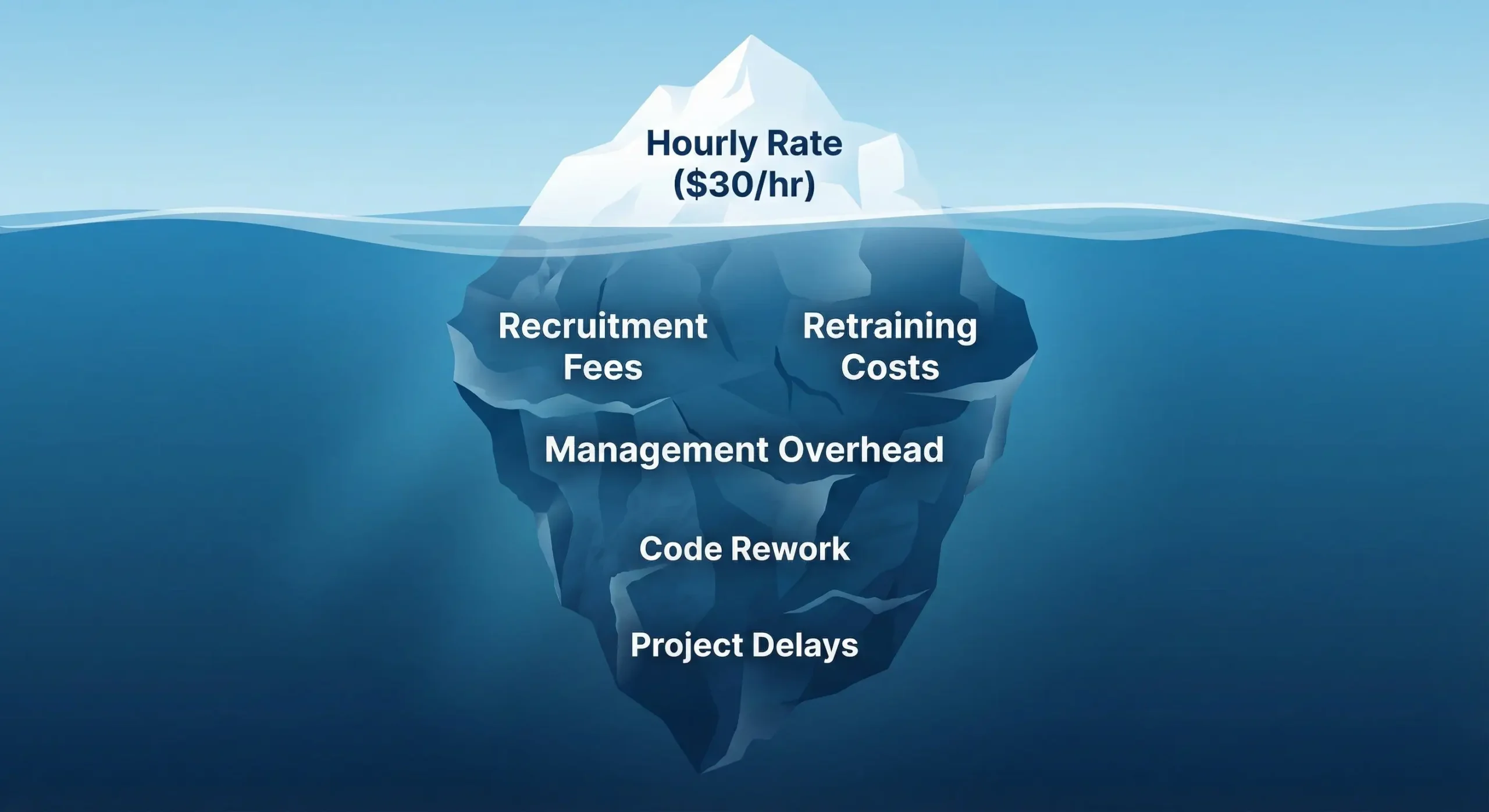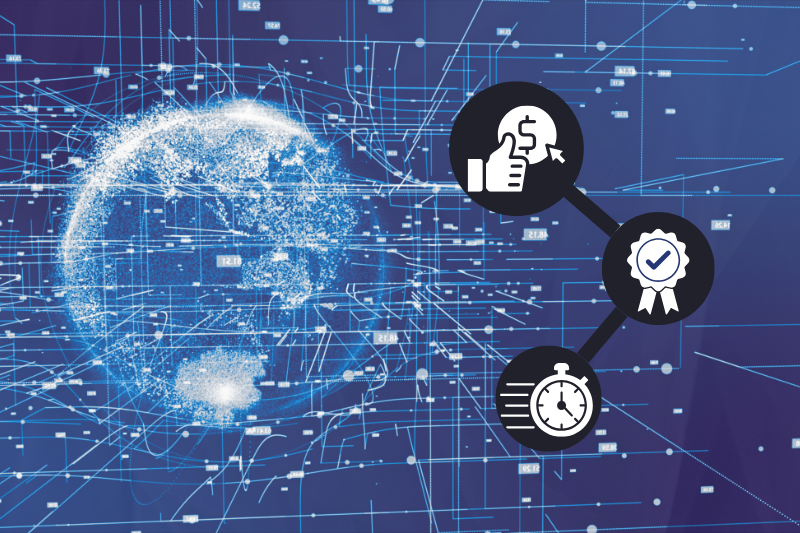The healthcare industry is undergoing a significant transformation driven by artificial intelligence. Among the most impactful developments is agentic AI, which refers to AI systems capable of autonomous decision-making and adaptive actions. Unlike traditional reactive models, agentic AI acts as a proactive partner in delivering patient care, managing operations, and supporting clinical workflows.
This blog outlines the core applications of agentic AI in healthcare, including diagnostics, chronic care, operations, and predictive analytics. It also explores how organizations can adopt agentic systems for long-term impact.
What Is Agentic AI in Healthcare?
Agentic AI systems are designed to operate with a level of autonomy that allows them to observe data, make decisions, and act with minimal human intervention. In a healthcare setting, these systems assist in delivering round-the-clock care, identifying patterns in patient behavior, predicting clinical outcomes, and improving decision support for providers.
This shift from reactive to proactive AI changes the role of technology in healthcare. Rather than simply responding to inputs, agentic AI anticipates needs, automates responses, and engages continuously with patients and staff.
Enhanced Diagnosis and Treatment Planning
One of the most promising applications of agentic AI is in diagnostics. These systems can process vast volumes of structured and unstructured health data like imaging results and genetic markers, more quickly and accurately than traditional systems.
An autonomous AI tool demonstrated higher accuracy than human radiologists in detecting early signs of breast cancer and lung nodules. These AI systems do not just identify anomalies; they provide clinicians with real-time diagnostic suggestions based on data from millions of past cases. This represents a significant advancement in patient support by enhancing early diagnosis and enabling more timely interventions.
Agentic AI also supports personalized treatment planning. By simulating different care scenarios and analyzing patient-specific data, these systems assist in selecting optimal interventions. This dynamic modeling helps clinicians stay ahead of patient deterioration and make timely decisions.
Always-On Digital Support
Agentic AI systems support healthcare outside of clinical settings through digital assistants and virtual care platforms. These tools offer 24/7 health monitoring, symptom triage, and medication reminders. In chronic disease management, continuous engagement helps patients stay informed and proactive.
AI-powered platforms such as Livongo have shown how automated coaching, vital tracking, and feedback loops can reduce emergency visits and improve health metrics for patients with diabetes, hypertension, and related conditions.
This always-on support model extends the reach of care teams and ensures that no critical sign or symptom is missed, particularly for at-risk patients.
Streamlined Operations and Resource Optimization

Beyond clinical care, agentic AI plays a growing role in automating administrative and operational tasks within hospitals and health systems. These include:
- Patient scheduling and queue optimization
- Electronic documentation and medical coding
- Inventory and lab result management
- Staff workload balancing
By automating these processes, healthcare organizations reduce human error, cut administrative overhead, and accelerate turnaround times. Clinicians spend less time on paperwork and more time with patients.
Institutions that have implemented AI-driven operations report higher patient satisfaction, lower operating costs, and better staff retention due to reduced burnout.
Predictive Health Management
Another key strength of agentic AI lies in predictive modeling. These systems evaluate current and historical health data to flag patients at risk of future complications. For example, predictive agents can identify patients likely to develop sepsis, cardiovascular issues, or mental health crises before symptoms escalate.
By enabling early intervention, agentic AI supports preventive care initiatives that reduce emergency admissions and hospital readmissions. Health systems benefit from improved outcomes and reduced financial strain, while patients experience more personalized and proactive care.
Agentic systems are also valuable in public health, where they analyze population-level data to forecast disease outbreaks or resource needs.
Integration with Healthcare Infrastructure
Successful implementation of agentic AI requires integration with existing health IT systems such as electronic health records (EHRs), payer platforms, and diagnostic tools. Interoperability ensures that AI agents can access accurate and real-time data across the care continuum.
Agentic systems must also comply with privacy and security standards like HIPAA, ensuring that patient data is protected at every stage. Role-based access, encryption, and audit trails are essential to maintain trust and meet regulatory expectations.
Organizations that invest in these foundational capabilities are better positioned to deploy scalable and secure agentic solutions.
TechKraft’s Approach to Agentic AI
At TechKraft, we help healthcare organizations adopt AI responsibly and effectively. Our experience spans AI-powered patient engagement tools, predictive modeling, automation of operational workflows, and integration of FHIR-based APIs to enhance data exchange and interoperability.
We prioritize compliance, scalability, and knowledge transfer. Through our Build Operate Transfer (BOT) model, we enable clients to benefit from ready-to-run agentic AI systems while upskilling their internal teams. This ensures that the technology is sustainable, auditable, and aligned with long-term clinical and business goals.
Future Outlook: What Comes Next
As AI models evolve, the next generation of agentic AI will handle more complex scenarios such as:
- Coordinating multi-specialty care pathways
- Facilitating real-time insurance adjudication
- Conducting personalized virtual consultations
- Supporting clinical trials through intelligent patient matching
These systems are also expected to become more collaborative, working in tandem with human experts to improve shared decision-making. With regulatory frameworks continuing to evolve, it is crucial that technology providers and healthcare leaders work together to ensure ethical and effective use.
Final Thoughts
Agentic AI is already transforming how care is delivered, data is used, and decisions are made. By adopting autonomous AI agents, healthcare organizations gain the ability to deliver faster, safer, and more personalized support for both patients and providers.
As pioneers in healthcare AI, TechKraft is committed to helping partners harness the full potential of agentic systems. From idea to implementation, our team delivers solutions that improve patient outcomes, optimize operations, and meet compliance needs at scale.
Partner with TechKraft to explore how agentic AI can elevate your digital health strategy and drive better outcomes across your organization.



